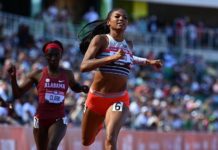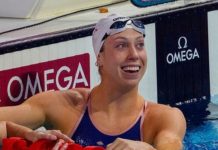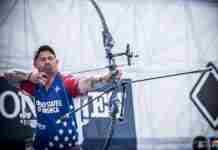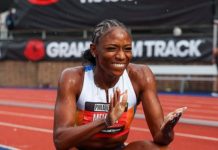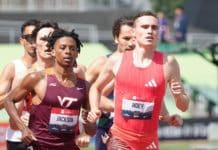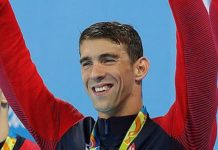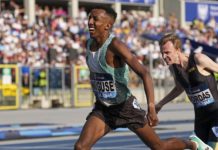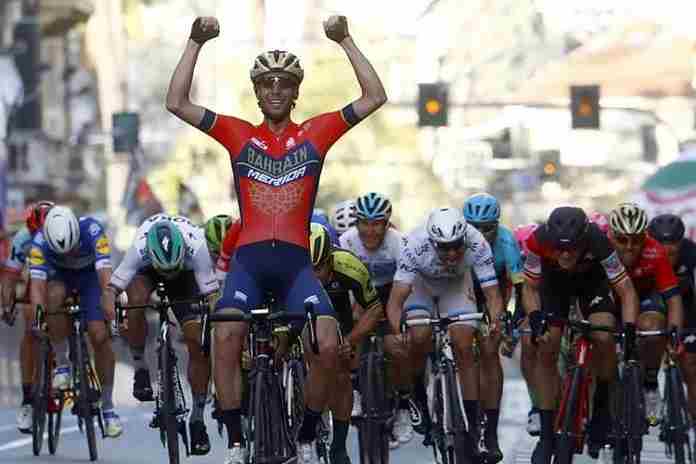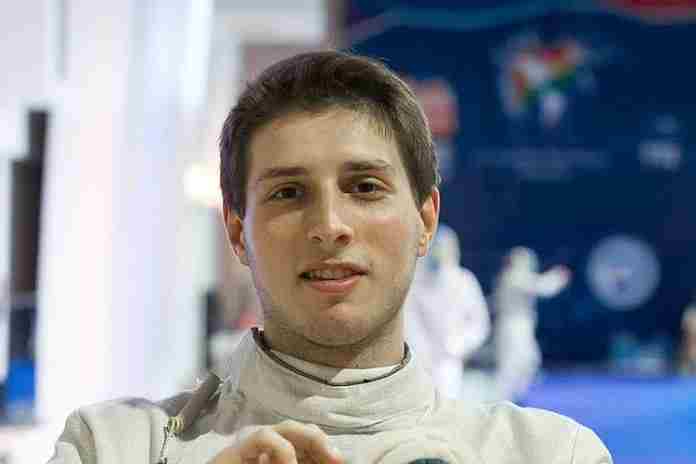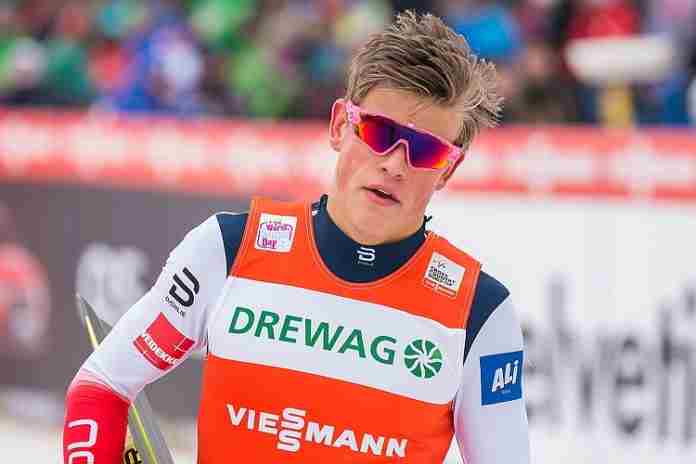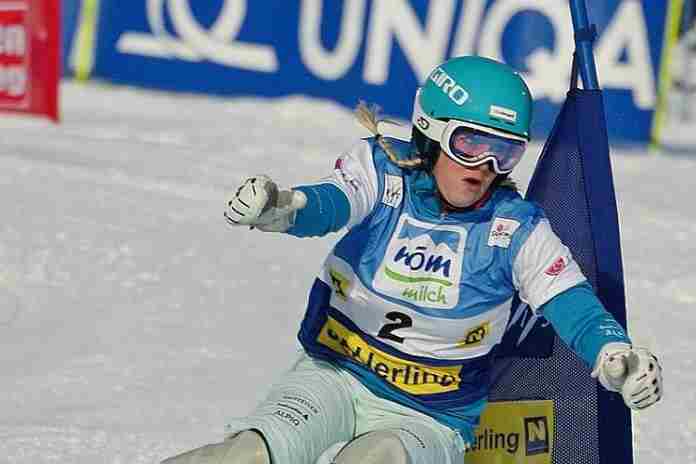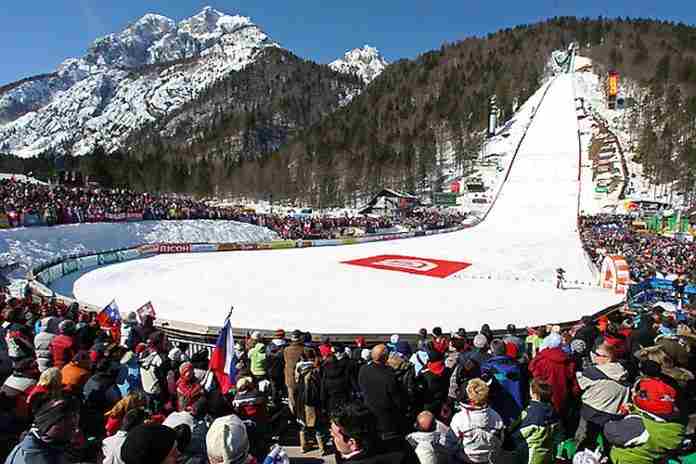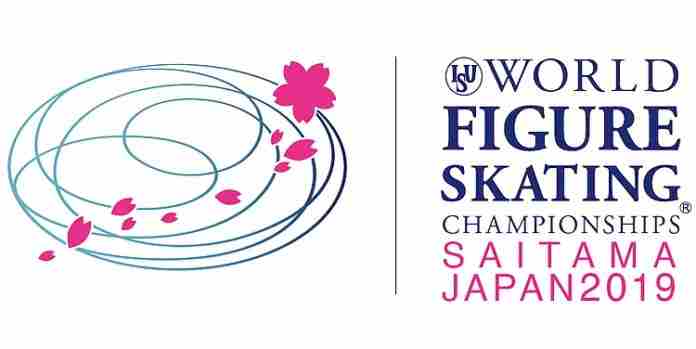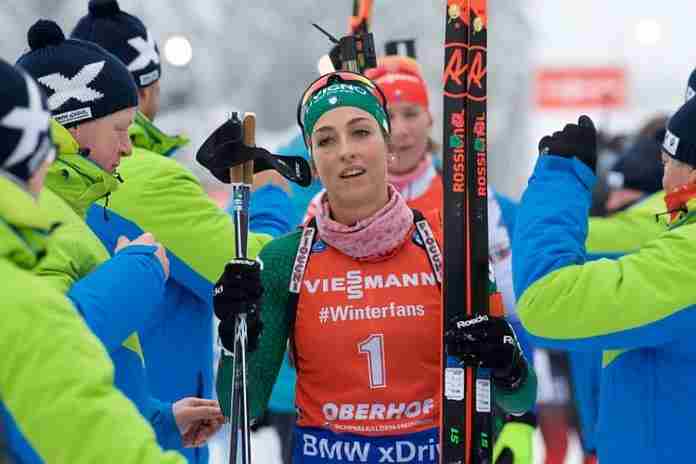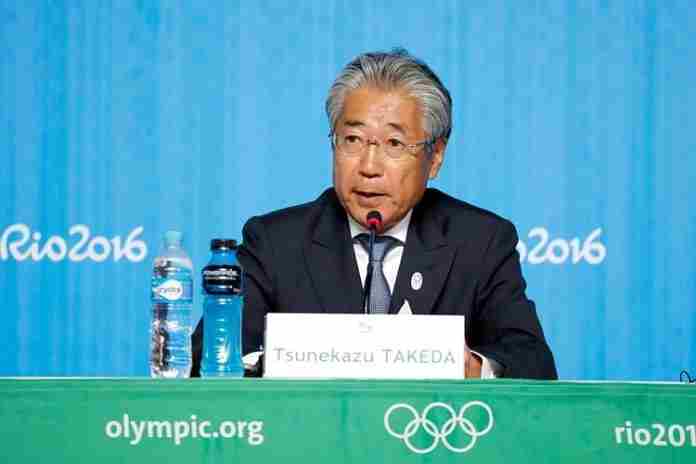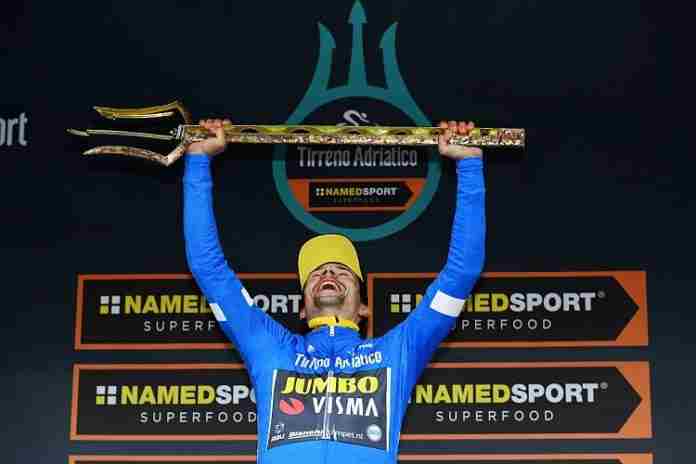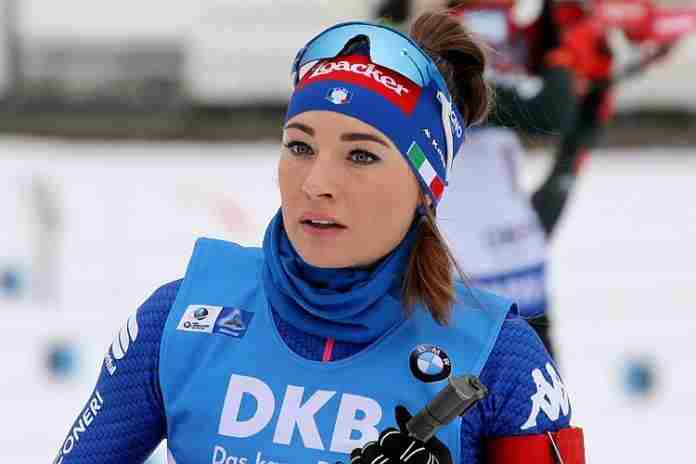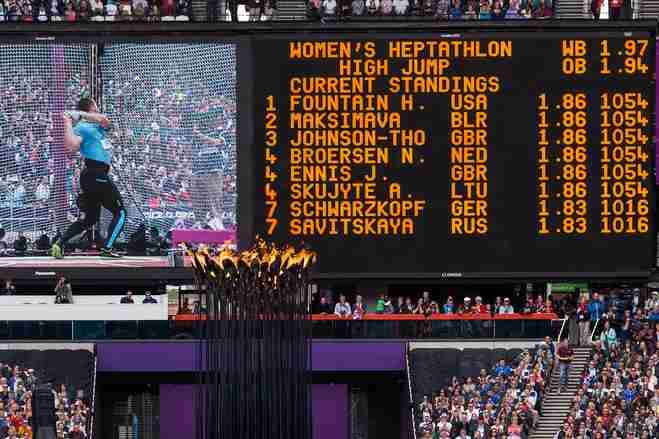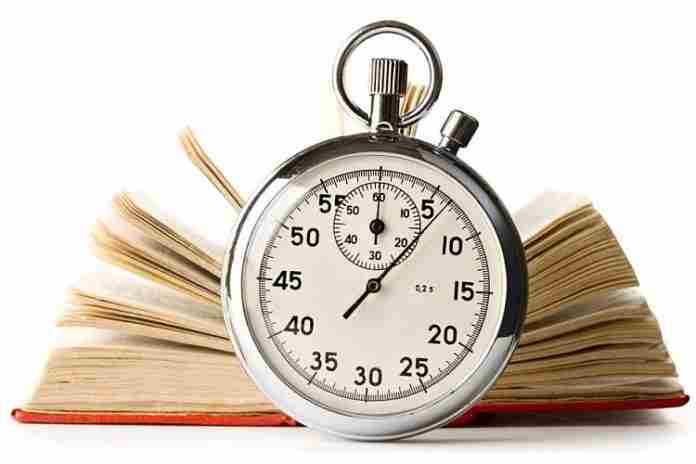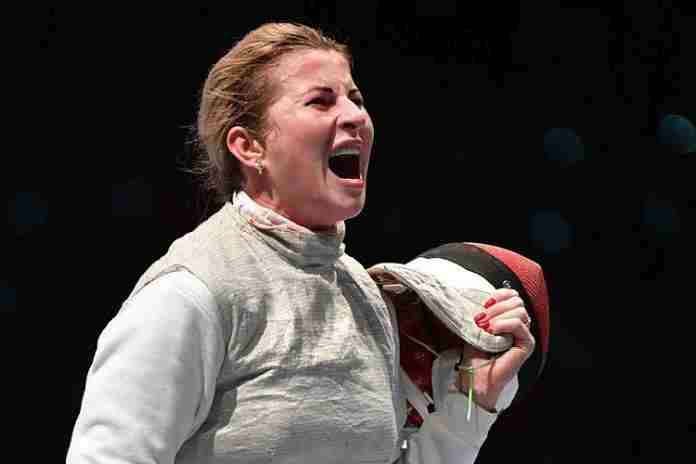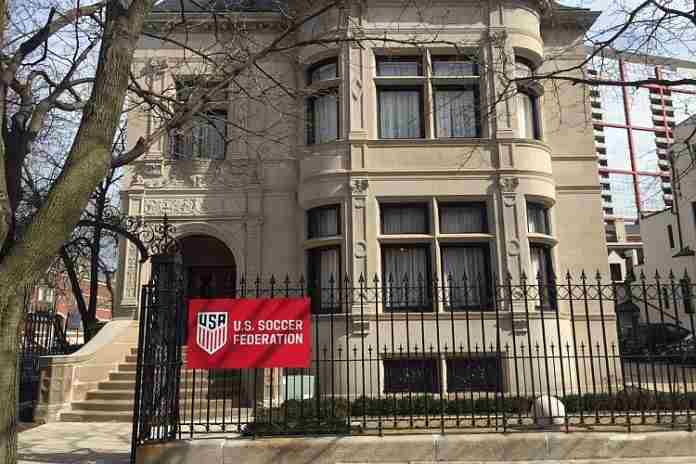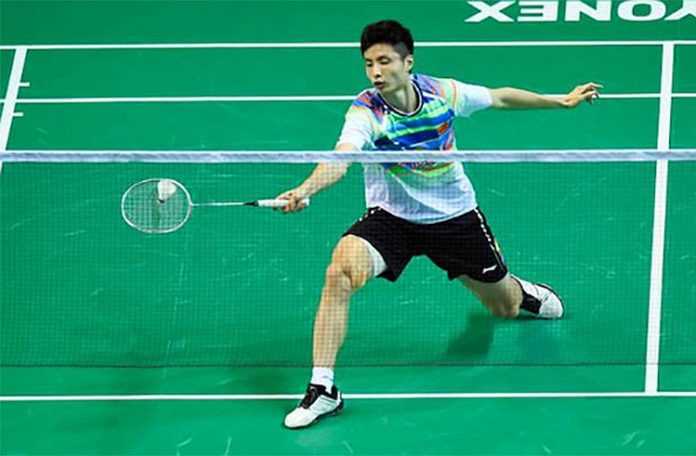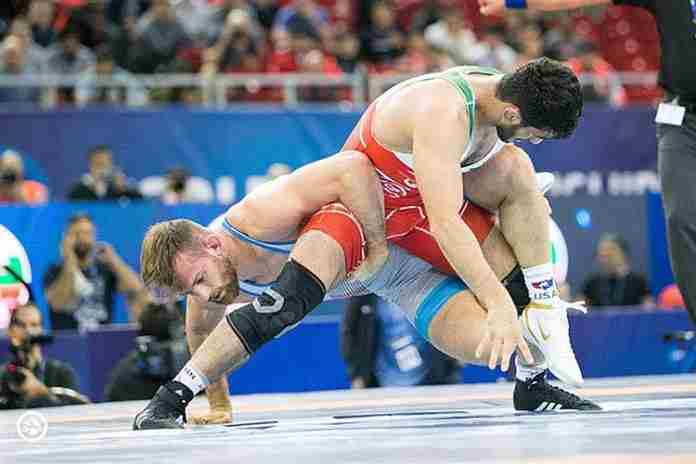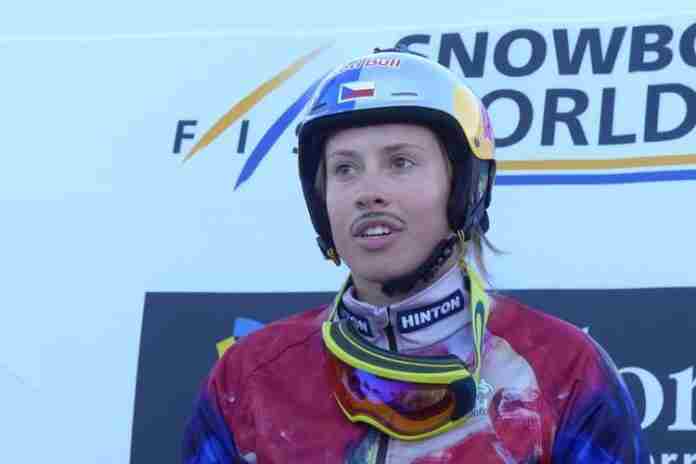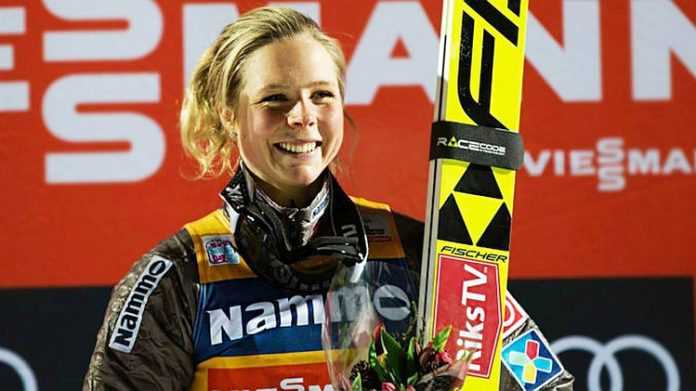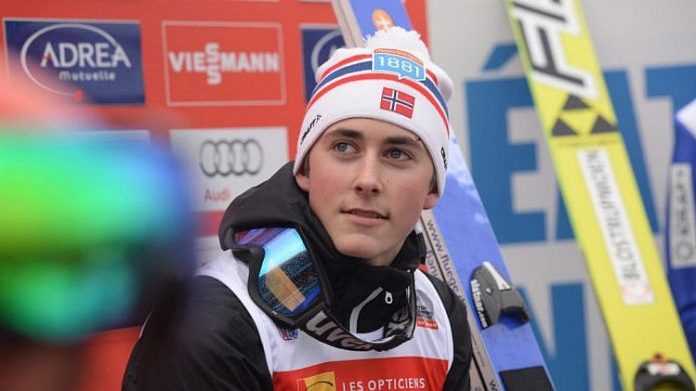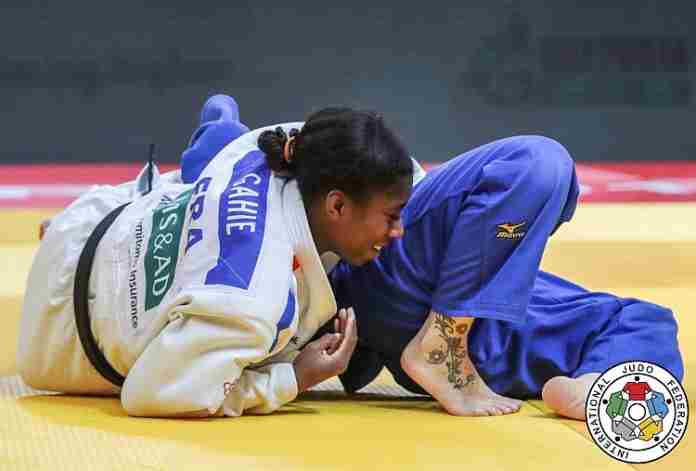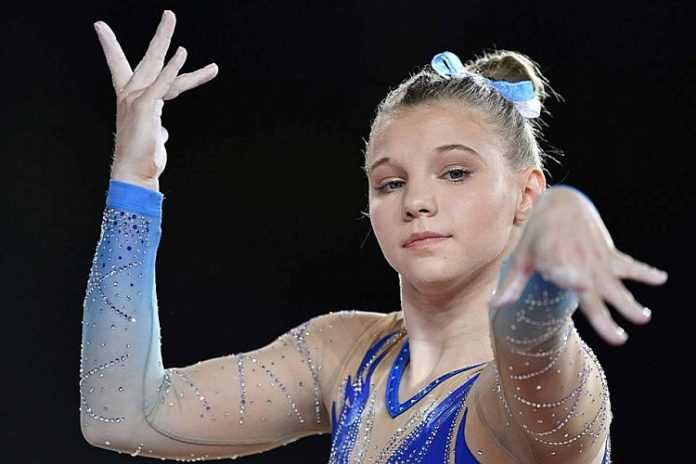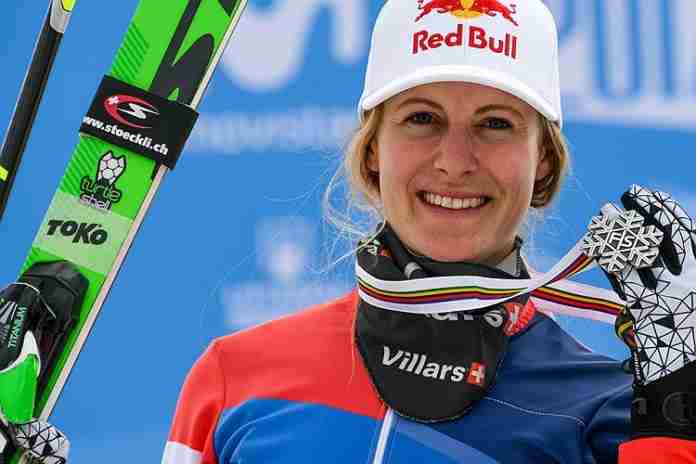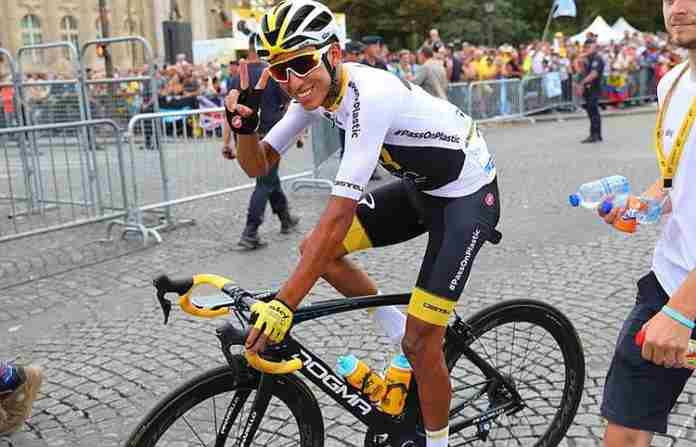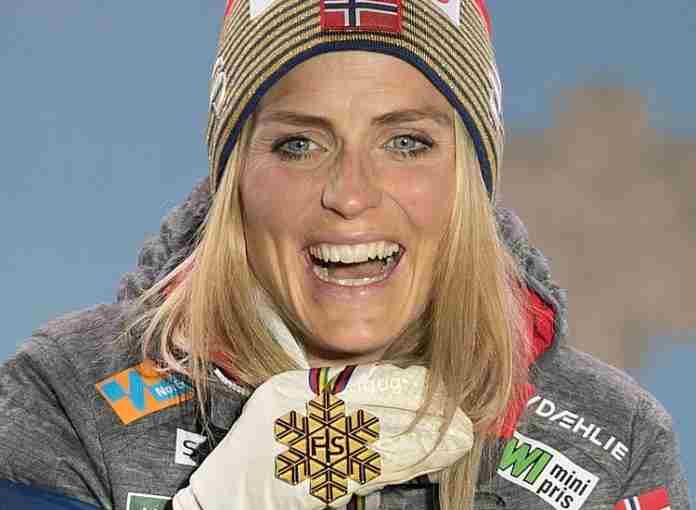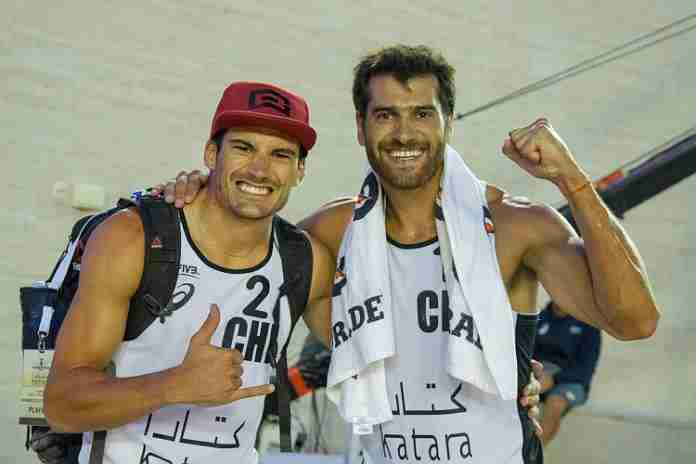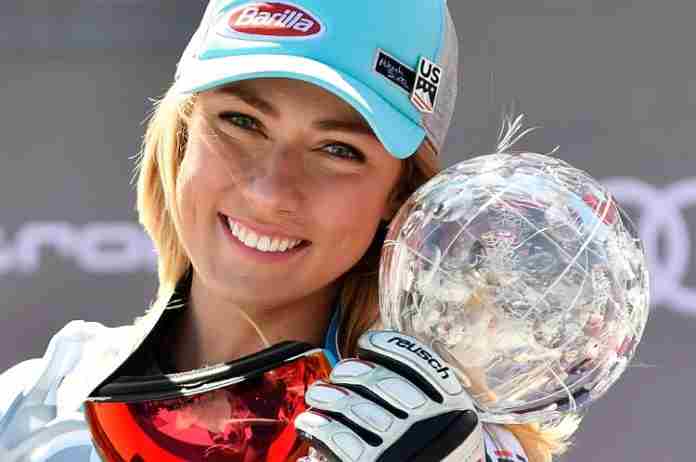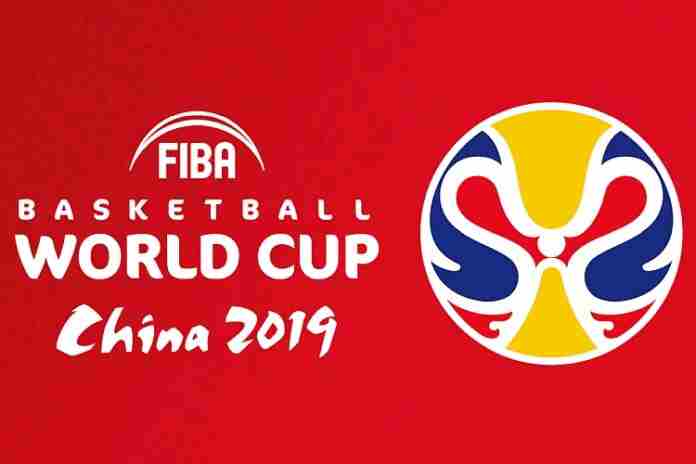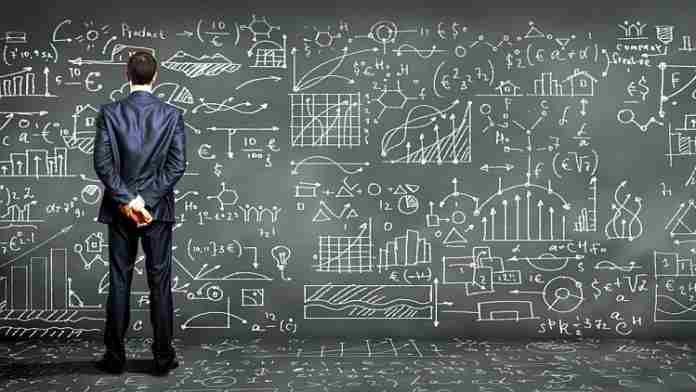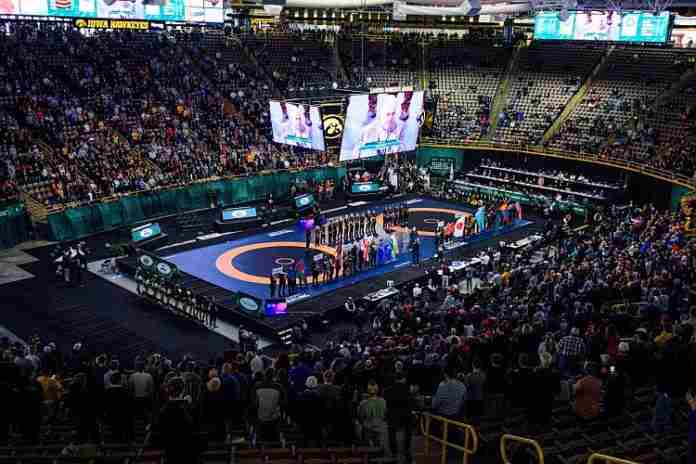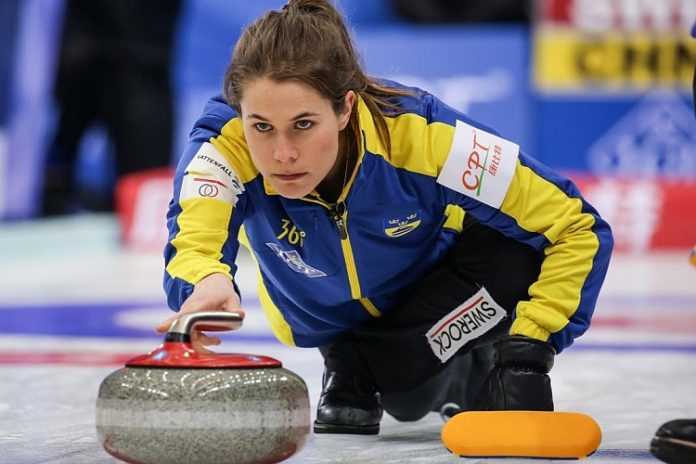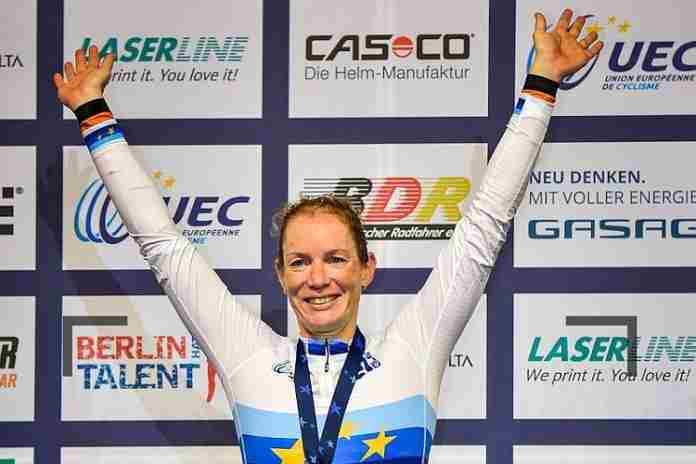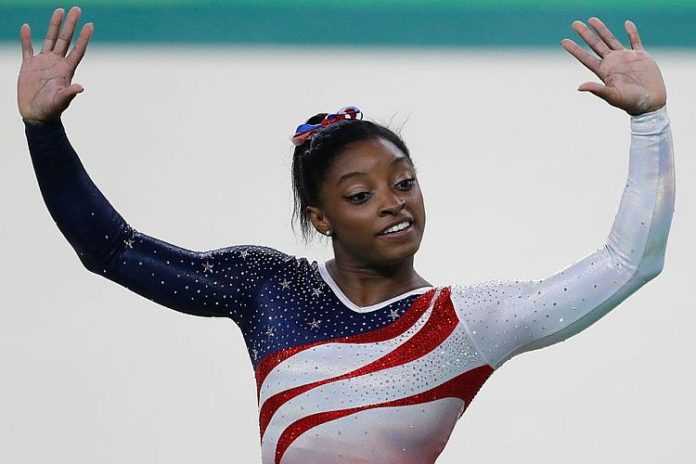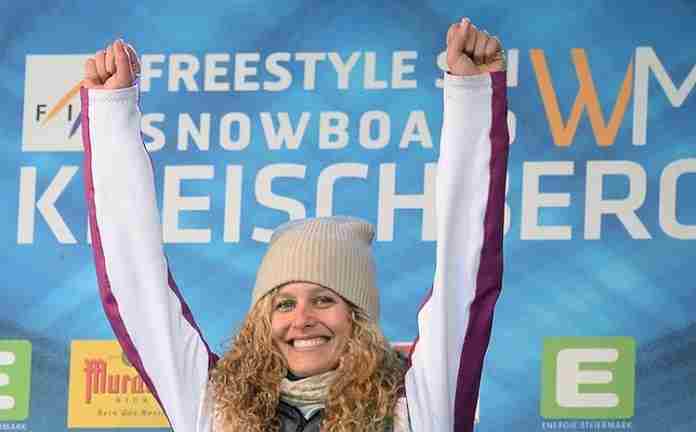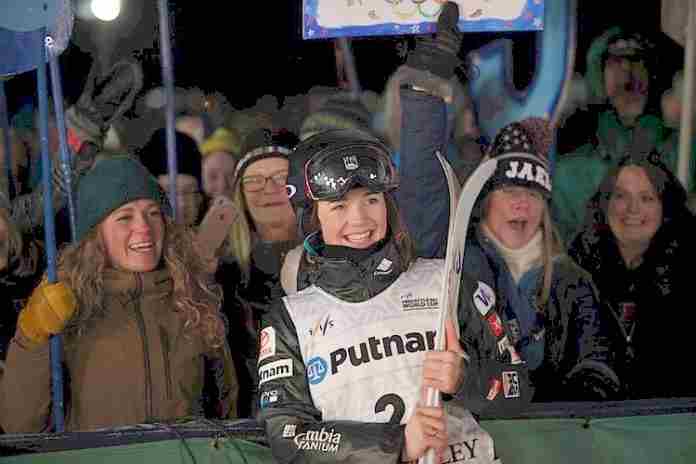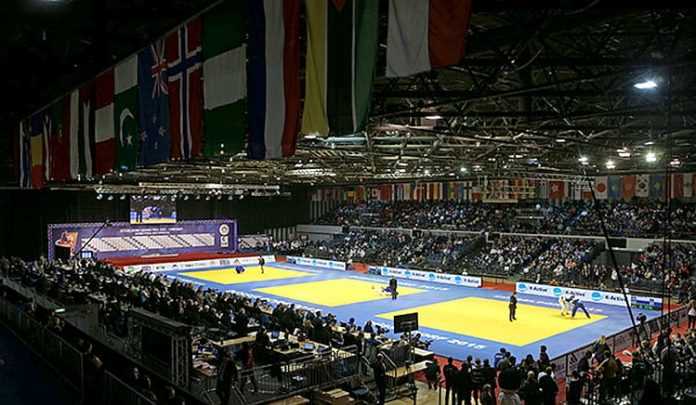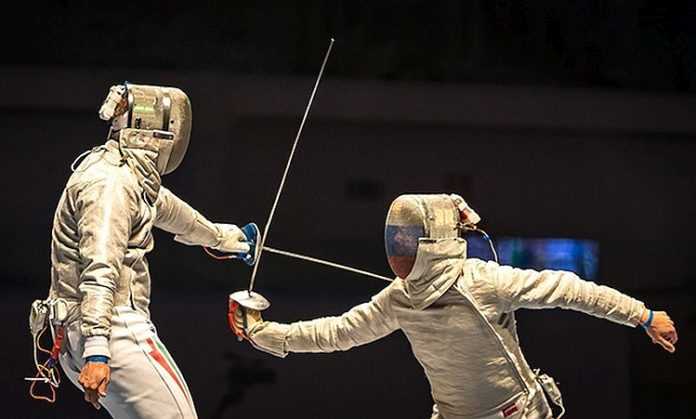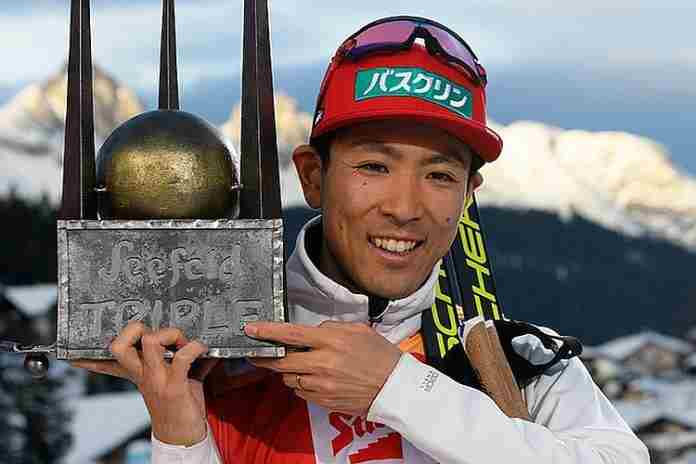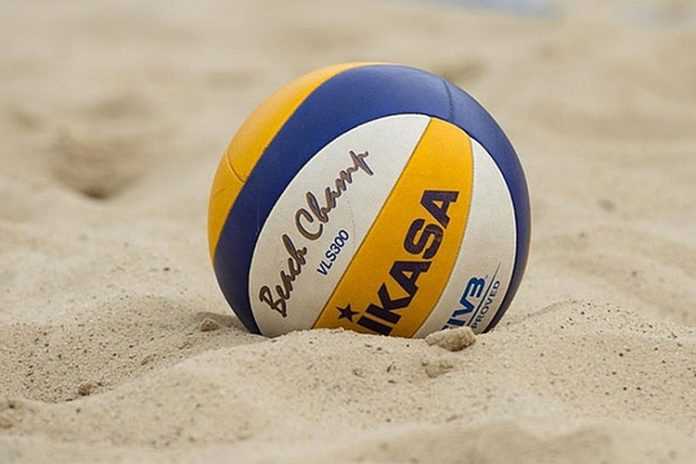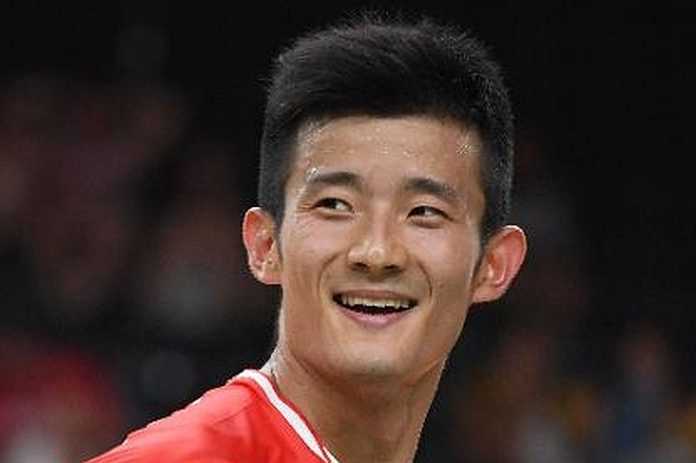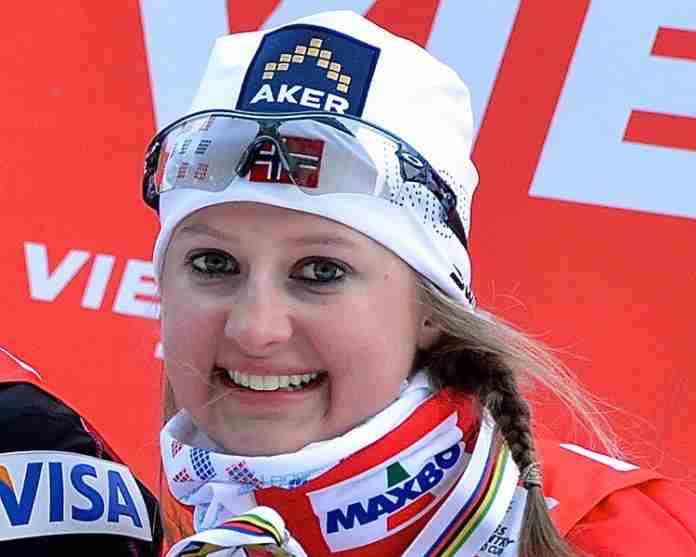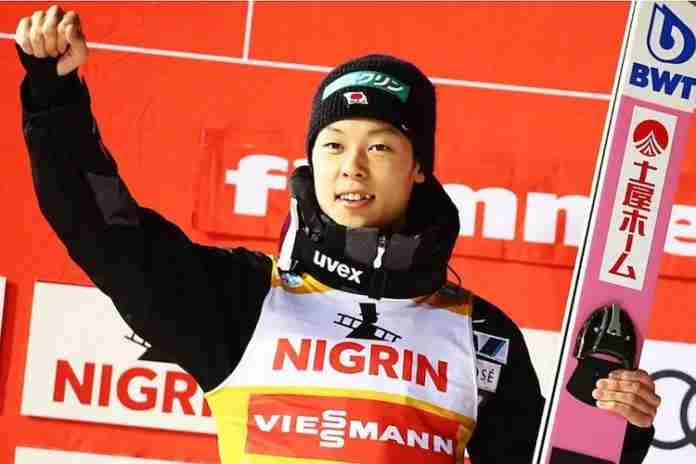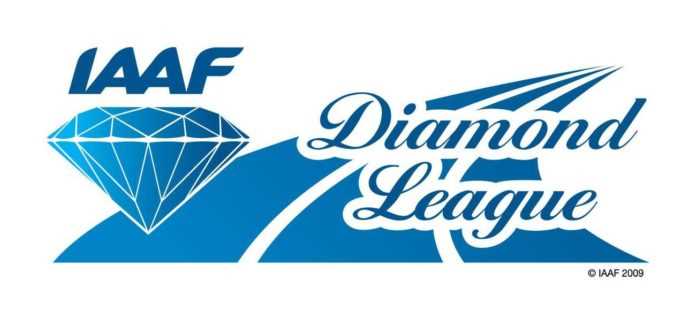Even for someone who is a two-time World Cup Champion and two-time Olympic Champion, this was a career year for Mikaela Shiffrin.
Still just 24, Shiffrin came into the World Cup Final in Soldeu (AND) and took care of business:
● She finished fourth in the Super-G, but that was enough to win the seasonal title, the first Super-G season crowd of her career.
● She had already won the Slalom title – her sixth – but she won the Slalom for her 16th win of the year, extending her own single-season record, and her ninth Slalom win of the season.
● She won the Giant Slalom and therefore won the season title in that discipline, giving her a total of eight discipline titles, to go along with her three overall titles.
The Slalom race on Saturday was difficult, as Shiffrin was second after the first run to Swiss Wendy Holdener, but then flew down the second run in 54.73, best in the field. Holdener held on for second overall and Petra Vlhova (SVK) finished second in the seasonal race.
“The second run was a really big fight,” Shiffrin said. “I already had the (Slalom Crystal Globe) where I came here today, so I was just skiing to try to be aggressive. I had some mistakes in both my first and second run, but it was aggressive skiing. The second run, it was just a battle to try and stay in the course, try to be athletic, and keep moving.”
On Sunday, Shiffrin just about had the season title wrapped up in the Giant Slalom, but she won the race to run away with her 11th Crystal Globe, taking a huge, 0.59-second lead on the first run and then coming safely down on the second run to out-last New Zealand’s Alice Robinson, 2:23.17 to 2:33.47.
“I came out here today…to fight and be aggressive, and maybe make mistakes, but ski really fast,” Shiffrin said. “My first run felt amazing, and my second run was feeling really, really good, then I went down on my hip, and I was thinking “I lost it!’ But that’s part of it, that’s part of the fight.
“The real goal is always pushing my level of skiing, pushing my limit. Seeing what’s possible…as long as I have motivation and fire, then I’ll be doing this as well as I can. That is kind of the ultimate goal. So in that way, it doesn’t matter how many Globes, or wins, or whatever, it’s just go for it because it’s fun.”
Shiffrin won 17 of the 35 World Cup races for women this season, an astonishing – and record-breaking – total. She won the overall title and three of the four major disciplines, a feat not achieved since Hermann Maier (AUT) did it in 2000-01. If you include the rarely-contested Combine, American Lindsey Vonn also won three disciplines in a season three straight years, in 2010-11-12.
It’s hard to imagine anyone having such a season, but – remember – Shiffrin is only 24. She is in third place all-time among women’s World Cup winners, finishing with 60 victories, two behind Annemarie Moser-Proell (AUT: 1969-80) and 22 behind Vonn, who retired earlier this season.
In the men’s racing, the Slalom went to France’s new star, Clement Noel, who won his third race of the season, with the seasonal title already clinched by Austria’s Marcel Hirscher.
The Giant Slalom was won by France’s Alexis Pinturault, who moved up to third in the seasonal standings, behind Hirscher – who won his 20th seasonal title – and Norway’s Henrik Kristoffersen. Summaries from Soldeu:
FIS Alpine Skiing World Cup Final
Soldeu (AND) ~ 13-17 March 2019
(Full results here)
Men
Downhill: 1. Dominik Paris (ITA), 1:26.80; 2. Kjetil Jansrud (NOR), 1:27:14; 3. Otmar Striedinger (AUT), 1:27:21; 4. Mauro Caviezel (SUI), 1:27.27; 5. Vincent Kriechmayr (AUT), 1:27.28. Also: 10. Travis Ganong (USA), 1:27.57; … 16. Steven Nyman (USA), 1:28.15; … 21. Bryce Bennett (USA), 1:28.91.
Downhill Final Standings: 1. Beat Feuz (SUI), 540; 2. Dominik Paris (ITA), 520; 3. 339, Vincent Kriechmayr (AUT), 339; 4. Aleksander Aamodt Kilde (NOR), 284; 5. Mauro Caviezel (SUI), 282. Also in the top 25: 7. Bryce Bennett (USA), 236; … 16. Steven Nyman (USA), 148; … 20. Travis Ganong (USA), 88.
Super-G: 1. Paris (ITA), 1:20.42; 2. Caviezel (SUI), 1:20.57; 3. Kriechmayr (AUT), 1:20.86; 4. Jansrud (NOR), 1:21.00; 5. Christof Innerhofer (ITA), 1:21.12. Also: 13. Ganong (USA), 1:21.93; … 16. Ryan Cochran-Siegle (USA), 1:22.24; … 19. River Radamus (USA), 1:23.16.
Super-G Final Standings: 1. Dominik Paris (ITA), 430; 2. Vincent Kriechmayr (AUT), 346; 3. Mauro Caviezel (SUI), 324; 4. Kjetil Jansrud (NOR), 316; 5. Aleksander Aamodt Kilde (NOR), 299. Also in the top 25: 16. Travis Ganong (USA), 115; … 23. Ryan Cochran-Siegle (USA), 47.
Giant Slalom: 1. Alexis Pinturault (FRA), 2:13.06; 2. Marco Odermatt (SUI), 2:13.50; 3. Zan Kranjec (SLO), 2:14.09; 4. Manuel Feller (AUT), 2:14.36; 5. Mathieu Faivre (FRA), 2:14.45. Also: 8. Ted Ligety (USA), 2:15.14; … 17. Tommy Ford (USA), 2:15.83.
Giant Slalom Final Standings: 1. Marcel Hirscher (AUT), 680; 2. Henrik Kristoffersen (NOR), 516; 3. Alexis Pinturault (FRA), 469; 4. Zan Kranjec (SLO), 344; 5. Loic Meillard (SUI), 313. Also in the top 26: 10. Tommy Ford (USA), 221; … 20. Ted Ligety (USA), 111; … 26. Ryan Cochran-Siegle (USA), 66.
Slalom: 1. Clement Noel (FRA), 1:48.96; 2. Feller (AUT), 1:49.14; 3. Yule (SUI), 1:49.79; 4. Ramon Zenhaeusern (SUI), 1:49.82; 5. Kristoffersen (NOR), 1:49.94.
Slalom Final Standings: 1. Marcel Hirscher (AUT), 786; 2. Clement Noel (FRA), 551; 3, Daniel Yule (SUI), 551; 4. Ramon Zenhaeusern (SUI), 521; 5. Henrik Kristoffersen (NOR), 516.
Women
Downhill: 1. Mirjam Puchner (AUT), 1:32.91; 2. Viktoria Rebensburg (GER), 1:32.94; 3. Corinne Suter (SUI), 1:32.99; 4. Nadia Fanchini (ITA), 1:33.13; 5. Tamara Tippler (AUT), 1:33.15.
Downhill Final Standings: 1. Nicole Schmidhofer (AUT), 468; 2. Stephanie Venier (AUT), 372; 3. Ramona Siebenhofer (AUT), 354; 4. Ilka Stuhec (SLO), 343; 5. Kira Weidle (GER), 307. Also in the top 25: 25. Mikaela Shiffrin (USA), 25.
Super-G: 1. Rebensburg (GER), 1:23.91; 2. Tippler (AUT), 1;24.06; 3. Federica Brignone (ITA), 1:24.25; 4. tie, Mikaela Shiffrin (USA) and Schmidhofer (AUT), 1:24.35.
Super-G Final Standings: 1. Mikaela Shiffrin (USA), 350; 2. Nicole Schmidhofer (AUT), 303; 3. Tina Weirather (LIE), 268; 4. Viktoria Rebensburg (GER), 257; 5. Ragnhild Mowinckel (NOR), 247.
Giant Slalom: 1. Shiffrin (USA), 2:23.17; 2. Alice Robinson (NZL), 2A:23.47; 3. Vlhova (SVK), 2:23.58; 4. Tessa Worley (FRA), 2:24.38; 5. Viktoria Rebensburg (GER), 2:25.20.
Giant Slalom Final Standings: 1. Mikaela Shiffrin (USA), 615; 2. Petra Vlhova (SVK), 478; 3. Tessa Worley (FRA), 460; 4. Viktoria Rebensburg (GER), 380; 5. Federica Brignone (ITA), 360.
Slalom: 1. Shiffrin (USA), 1:48.15; 2. Wendy Holdener (SUI), 1:48.22; 3. Petra Vlhova (SVK), 1:49.35; 4. Anna Swenn Larsson (SWE), 1:49.73; 5. Frida Hansdotter (SWE), 1:50.04.
Slalom Final Standings: 1. Mikaela Shiffrin (USA), 1,160; 2. Petra Vlhova (SVK), 877; 3. Wendy Holdener (SUI), 681; 4. Anna Swenn Larsson (SWE), 486; 5. Frida Hansdotter (SWE), 479.
Mixed
Team Event/ Big Final: 1. Switzerland (Danioth, Holdener, Yule, Zenhaeusern); 2. Norway; Small Final: 3. Germany; 4. Canada. Final: Switzerland d. Norway, 2-2 (42.93-43.30 tie-break).








